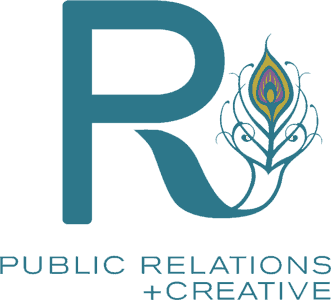PR
Building Brand Awareness: Discover the Synergy of PR and Marketing Strategies
In the challenging and competitive world of business, building brand awareness is the linchpin for success. Success lies not only in crafting a recognizable brand but also in ensuring that the brand resonates with the target audience. And although it might sound simple, there is no hard and fast method for building brand awareness that works for every business. Instead, brand awareness work requires business acumen, a deep understanding of your products, services, and audiences, and experience in public relations and marketing.
To navigate this intricate landscape, professionals often turn to public relations (PR) and marketing teams, two distinct yet interwoven verticals. In this article, we'll explore the nuances of each and delve into unique tactics to elevate brand awareness while better understanding the symbiotic relationship between PR and marketing.
Differentiating PR and Marketing in the Pursuit of Brand Awareness
Public relations and marketing, though aligned in many ways, operate through different lenses. Marketing is about promoting products or services, focusing on sales and lead generation. It utilizes advertising, content creation and promotion, and digital strategies to reach consumers directly.
On the other hand, public relations is more about managing relationships, reputation, and communication with various stakeholders. PR aims to shape public perception through media coverage, events, and other non-paid channels.
The convergence of PR and marketing is vital for comprehensive brand building. A strategic and holistic plan ensures a unified and resonant brand narrative and consistency across all channels.
PR Strategies for Building Brand Awareness
1. Influencer Partnerships with a Purpose

In the age of social media dominance, influencers wield significant power. However, the key to great influencer partnerships is not just reaching audiences but doing so authentically. PR professionals can identify influencers whose values align with the brand and nurture meaningful partnerships. That way, when content is published, it feels organic for both parties. This authenticity fosters trust among followers, translating into heightened brand awareness.
2. Strategic Event Sponsorships
Events, whether physical or virtual, provide a platform for direct engagement. PR specialists can strategically select events that align with the brand ethos and values. Sponsoring or participating in these events enhances visibility and credibility, creating lasting impressions in the minds of the target audience. It also gives the brand a physical presence and helps consumers remember it down the line.
3. Compelling Storytelling Through Media Relations
Media coverage remains a primary and necessary tool for building brand awareness. PR professionals can craft compelling narratives about the brand's journey, innovations, breaking news, or social impact. These stories, when strategically pitched to media outlets and journalists, enhance brand credibility and help the brand name and story reach a broader audience than through just owned channels like email and social media.
4. Community Engagement Initiatives
Once a foundation is built, improving brand awareness must extend beyond traditional channels. Broader PR strategies can include community engagement initiatives that showcase the brand's commitment to social responsibility, like hosting volunteer events, donating to local causes, or working for non-profits pro bono. This involvement not only enhances the brand's image but also fosters a sense of community, creating a loyal customer base.
Marketing Tactics
1. Search Engine Optimization (SEO) Magic
To boost online visibility, marketing professionals must master the art of SEO. Crafting content around relevant keywords, optimizing website structure, and earning backlinks are crucial to showing up at the top of search queries. Regularly updating content ensures the brand remains visible in search engine results, driving organic traffic and building brand awareness.
2. Engaging Social Media Campaigns

Social media is a playground for brand visibility. Marketing experts can design engaging campaigns that leverage the interactive nature of platforms like Instagram, Twitter, and TikTok. By creating shareable, authentic content and encouraging user participation, brands can amplify their reach and foster a sense of community.
3. Content Marketing Mastery
These days, content is king, and marketing professionals must produce it with finesse. Creating high-quality, valuable content not only establishes the brand as an authority in the field but also provides shareable assets for many platforms. Internal teams can reuse great content in emails, on the website, in presentations, and at events, and consumers can then reshare said content, reaching even larger audiences. From blog posts and videos to infographics, diverse content caters to varied audience preferences.
4. Email Marketing Precision

In the era of personalization, email marketing remains a powerful tool. Marketing professionals can curate targeted email campaigns to their owned audiences, delivering relevant content directly to the inboxes of potential customers. This personalized approach fosters a connection and keeps the brand at the forefront of the audience's mind over days, months, and years.
The Synergy of PR and Marketing for Building Brand Awareness
Collaboration between PR and marketing teams is the secret sauce for unparalleled brand awareness. PR lays the foundation by shaping perception, building credibility, and fostering relationships. Marketing, in turn, takes the crafted brand image and amplifies it through strategic campaigns, ensuring widespread visibility. In a world inundated with information, both PR and marketing play unique roles in breaking through the noise.
The Power of a Unified Approach
In the pursuit of building brand awareness, PR and marketing are not mutually exclusive but rather indispensable partners. Integrating both strategies ensures a comprehensive and cohesive approach to brand building, where authenticity meets visibility, creating a lasting impression in the minds of consumers. Embrace the duo and witness the transformation of your brand awareness into a formidable competitive advantage.
Crafting an Effective PR Message: A Step-by-Step Guide
In the public relations industry, the ability to craft an impactful PR message is crucial. Whether you're representing a brand, company, or individual, the messages you convey shape perceptions and influence stakeholders. Slipshod copy without exceptional thought, research, and care won’t get you far. This step-by-step guide delves into the art of developing PR messaging that not only resonates but also leaves a lasting impression with stakeholders across the board, from journalists to potential customers or investors.
The Foundation: Understanding Your Audience

Before diving into the message creation process, PR pros must have a comprehensive understanding of their target audience. Who are they in terms of gender, age, and geographic location? What are their interests, values, and pain points? Tailoring your message to resonate with your audience is the first crucial step in effective communication.
There are several effective ways to gather information about your audience. Start with user research. Email engaged audience members a survey with the chance to enter a drawing or reach out directly to your most loyal customers. You can also set up a post-purchase survey for all customers. Frequently take a look at marketing analytics data on social media and digital platforms to understand the breakdown of your online audience. You can also have one-on-one interviews, write case studies, and seek out psychographic data to inform your approach and language.
SEO Integration: Making a PR Message Work for You
To optimize your online visibility and reach, strategically incorporate keywords and phrases into your content. Sprinkle them organically throughout your messaging to enhance search engine rankings and make your work more discoverable. Remember, effective SEO is about seamless integration, so aim for a balance that maintains the flow and readability of your content.
Crafting Exceptional Messaging
Once you’ve laid the groundwork for great messaging, it’s time to dig in. Follow our step-by-step guide to ensure your PR messages are on point every time.
Step 1: Define Your Objective
Every PR message should have a clear objective. Whether it's to enhance brand awareness, mitigate a crisis, or promote a new product, a well-defined objective is a guiding light throughout the message creation process. Keep your objective in mind as you begin writing, ensuring that every element of your message aligns with your overarching goal. Also, be sure to weave your main objective into the message early on — ideally, in the first or second sentence.
Step 2: Craft a Compelling Narrative

Humans are naturally drawn to stories. To make your PR message memorable, weave a compelling narrative that engages emotions and resonates with your audience. Whether you're highlighting a brand's journey, a client's success, or a groundbreaking product, storytelling adds a personal touch that fosters connection.
SEO Tip: Utilize Long-Tail Keywords
Incorporate long-tail keywords related to your message to enhance your SEO strategy. Long-tail keywords provide specificity and help your content rank higher for niche search queries. For example, if your PR message is about a sustainable fashion initiative, include long-tail keywords like "eco-friendly fashion movement" or "sustainable clothing campaign."
Step 3: Keep It Clear and Concise
In the age of information overload, brevity is critical. Craft your PR message with clarity and conciseness in mind. Avoid overused or difficult-to-understand jargon, and distill complex ideas into simple, digestible language. Aim for a message that can be understood at a glance while still conveying depth, substance, and authenticity.
Step 4: Emphasize Unique Selling Points
Highlight what sets your brand or client apart. Whether innovation, sustainability, or exceptional service, emphasizing unique selling points adds value to your PR message. Clearly communicate what makes your brand or client distinctive and why your audience should take notice.
Step 5: Inject Creativity for Catchiness

To make your PR message stand out, inject creativity into your communication strategy. Whether it's through compelling visuals, memorable taglines, or interactive elements, creativity grabs attention and fosters a positive brand image. Don't be afraid to think outside the box to leave a lasting impression on your audience and improve the chances of securing press coverage if that’s one of your goals.
SEO Final Touch: Optimize Images and Alt Text
Images and alt text can contribute to PR messaging, too! Optimize images with relevant file names and alt text to improve accessibility and SEO and to help fill in messaging gaps. Use descriptive alt text that includes your key phrase to provide context to search engines and readers and enhance the discoverability of your visual content.
Bringing It All Together for an Effective PR Message
Crafting an effective PR message requires a strategic blend of audience understanding, storytelling, clarity, uniqueness, and creativity. By integrating these elements, you'll not only captivate your audience but also enhance your online visibility and impact. Mastering the art of PR messaging is an ongoing process, so continue to analyze results, edit often, adapt to industry trends, and refine your approach for continued success.
Or, to learn how our team of experts can help with your PR messaging, schedule your free consultation today!
How PR Helps Entrepreneurs Grow Their Business
In the dynamic and competitive world of entrepreneurship, building a successful business requires more than just a great product or service. It demands effective communication, strategic branding, and a positive public image. That’s where public relations (PR) comes in. Understanding how PR works can be a game-changer for entrepreneurs navigating the complex business landscape. Here are five ways PR can help entrepreneurs succeed.
1. Build Credibility and Trust

One of the most significant contributions of public relations to an entrepreneur's journey is the establishment of credibility and trust. Consumers are more likely to engage with a brand they perceive as credible and trustworthy. PR professionals can shape a positive narrative around your business through well-crafted press releases, media interactions, and strategic storytelling. Positive coverage in reputable publications, testimonials from satisfied customers, and endorsements from influencers all contribute to building a solid foundation of trust in the eyes of your target audience.
In the age of digital influence, endorsements from influencers carry considerable weight. Strategic partnerships with influencers who align with the brand's values can amplify its reach and credibility. These influencers, often considered authorities in their respective niches, have cultivated trust with their followers. When they endorse a product or service through their channels, they extend that trust to the endorsed brand, making it more appealing and trustworthy to their audience.
Media interactions are another integral facet of this narrative-building process. By engaging with journalists and media outlets, entrepreneurs can present their stories in a compelling and authentic manner. Whether through interviews, features, or expert opinions, these interactions help humanize the brand, making it more relatable and, consequently, trustworthy in the eyes of the public.
2. Create Brand Awareness with Strong PR Strategies

In the crowded marketplace, standing out is a constant challenge for entrepreneurs. PR plays a pivotal role in creating and maintaining brand awareness. By securing media coverage, participating in industry events, and leveraging social media, public relations helps entrepreneurs amplify their brand message. Whether it's a feature article in a leading publication, a well-executed social media campaign, or a thought leadership piece in a relevant industry blog, these PR strategies increase your brand's visibility and position it in the minds of potential customers.
3. Attract Investors and Partnerships
Entrepreneurs often need financial support and strategic partnerships to scale their businesses. PR can significantly influence potential investors and collaborators by showcasing the business in a positive light. A well-crafted PR strategy can highlight key achievements, milestones, and the overall potential of the venture. This positive exposure attracts investors and opens doors to valuable partnerships, collaborations, and networking opportunities that propel the business forward.
PR is a strategic bridge between entrepreneurs and the resources critical for scaling their businesses. It transforms the business's narrative into a compelling story that resonates with investors and collaborators alike. By emphasizing achievements, milestones, and the overarching potential of the venture, PR not only attracts financial support but also creates an environment ripe for forging strategic partnerships and cultivating a network that propels the business forward.
4. Manage a Company’s Reputation in a Crisis
No business is immune to challenges, and how a company navigates crises can define its future. PR is instrumental in managing a business's reputation during difficult times. Effective communication is vital, whether addressing a product recall, responding to negative reviews, or handling a public relations crisis.
PR professionals can develop crisis management plans, provide guidance on messaging, and help the entrepreneur navigate the storm while minimizing damage to the brand. Timely and transparent communication can turn a crisis into an opportunity to showcase the business's commitment to integrity and customer satisfaction.
5. Promote Thought Leadership as an Entrepreneur

Positioning yourself as a thought leader in your industry not only boosts your personal brand but also adds credibility to your business. PR can help entrepreneurs share their expertise and insights through various channels, such as guest articles, speaking engagements, and expert interviews.
Entrepreneurs can become go-to experts in their field by consistently contributing valuable content to industry conversations. This not only enhances the reputation of the individual entrepreneur but also elevates the standing of the entire business, making it a recognized authority in the industry. This practice is not merely a means of self-promotion; it is a deliberate effort to share expertise, address industry challenges, and contribute meaningful insights to the collective knowledge base.
As entrepreneurs contribute valuable content, they become a reliable source of information, advice, and innovation within their industry. This consistency builds trust among peers, competitors, and, most importantly, their target audience. By sharing their expertise openly and transparently, entrepreneurs demonstrate a commitment to the growth and advancement of the industry.
Public relations is a powerful tool that entrepreneurs can leverage to propel their businesses to new heights. From establishing credibility and building trust to creating brand awareness, attracting investors, managing reputation, and facilitating thought leadership, PR is a multifaceted strategy that can significantly contribute to the success of an entrepreneurial venture. As entrepreneurs navigate the complexities of the business world, incorporating a well-thought-out PR strategy can make all the difference in creating a positive public image, fostering growth, and ultimately achieving long-term success.
Help with PR for Entrepreneurs
At RPR Firm, we have a team of PR professionals with the skills and experience to help you create successful public relations strategies to grow your business. Schedule a free consultation with us today.
Unlock the Power of Corporate PR: Expert Tips for Startups
As a startup owner, you may already know that building your brand and making a name for yourself in your industry is crucial for success. One of the best ways to do this is through effective corporate public relations (PR).
This post will give you a brief overview of corporate PR and its importance for startups. We'll also delve into the critical components of an effective PR strategy in 2023. Additionally, we'll analyze how corporate PR has evolved this year. And what we can expect in 2024 based on expert predictions and forecasts. Whether you're just starting out or looking to take your startup to the next level, read on to unlock the power of corporate PR.

Understanding Corporate PR: A Brief Overview
PR is crucial to establishing and managing a company's reputation and public image. The practice involves strategic communication aimed at various target audiences, and PR professionals utilize a range of tools to achieve these goals, including social media, content marketing, and media relations. By employing different communication strategies, they ensure that the company's reputation is maintained and that it engages with the general public.

How Has Corporate PR Changed in 2023?
Corporate PR has seen some shifts in 2023. Crisis management on social media has become a priority, along with focusing on corporate social responsibility and brand awareness. Expanding target audiences require PR departments to adapt their communication strategies.
Crisis Management on Social Media
PR professionals regularly leverage critical thinking skills to anticipate potential crisis scenarios. In today's digital landscape, news moves faster than ever across a wide-ranging suite of platforms. PR teams — especially those in the startup space — must consider global, regional, and local news and crises on a daily basis to determine the best path forward for their business. Every post, statement, and article can be taken out of context if published at the wrong time or on the wrong social platform. Daily critical, forward-thinking brainstorming sessions can keep new businesses on track while establishing their brand. When used intelligently, social media can even act as a valuable tool for quick statement distribution.
Corporate Social Responsibility
By staying up-to-date with industry trends, PR professionals can navigate the ever-evolving communications landscape and proactively address any challenges that may arise. Corporate responsibility has shown up in a big way in 2023, and PR professionals can expect to see more in 2024. Not only do social responsibility campaigns improve internal employee satisfaction rates, but they offer a compelling narrative for external storytelling.
Brand Awareness Across Platforms
PR departments now prioritize content creation for website copy and social media posts to engage effectively with multiple target audiences. In the past, media relations was a stronger focus. With this new emphasis on “owned” media, or content published on platforms that the brand controls, there’s an ever-growing need for excellent writers and storytellers to help make brands stand out in the market. Integrating content marketing skills and storytelling strategies into their daily practices allows PR teams to build and maintain their company's brand awareness.

What Can We Expect from Corporate PR in 2024?
In 2024, corporate PR will focus on managing company reputation and enhancing brand awareness through content marketing. PR professionals will utilize a multi-channel approach, including email campaigns and social media strategy, to reach their target audience effectively and consistently.
Emphasis on Reputation Management and Brand Awareness
In the upcoming year, PR professionals will prioritize internal communication strategies to provide valuable resources for employees. Internal employees, in fact, play a crucial role in crisis communications and can act as emergency responders when needed. That being said, the need for transparency from leadership and buy-in from team members is higher than ever. Internal communications should be treated as high-priority, and employees should receive news and updates before the general public. Team member word of mouth can be a powerful, positive PR tool.
Multi-Channel PR Strategies
To engage new potential customers, PR teams will utilize a wide variety of communication channels. This includes leveraging traditional media coverage to ensure the company's brand and reputation are positively portrayed. As well as using new social media channels like TikTok and Lemon8. The resurgence of legacy channels like email and YouTube, and the return of live events. With so much variety on their plates, successful PR professionals will need vast technical skills and expertise in organizational communication in 2024.
Getting Started with Corporate PR for Your Startup
Corporate PR plays a crucial role in shaping the image and reputation of businesses, large and small, but especially new startups. By building a solid brand, enhancing credibility, engaging with target audiences. And effectively managing crises, startups can establish themselves as industry leaders early on.
In the ever-evolving PR landscape, staying on top of the latest trends is essential. Looking ahead to 2024, experts predict that corporate PR will continue to be driven by digital strategies and content marketing. If you're looking for guidance and support in navigating the world of corporate PR, don't hesitate to get in touch with our team. We are here to help you unlock the power of corporate PR for your startup's success.
PR for Startups: Building a Strong Foundation for Success
Starting a new business is like embarking on an exhilarating adventure. You've got a brilliant idea, a solid business plan, and the drive to make it big. But how can you ensure your startup attracts the attention it deserves in a crowded, ever-growing market? The answer lies in PR, an exciting yet confusing world for many new business owners. Read on for a list of PR strategies for startups and actionable tips to help your startup succeed.
1. Define Your Unique Story
Every startup has a one-of-a-kind story that’s just waiting to be told. After all, there must have been a pretty good reason for taking the leap into business ownership! Whether it's your journey of inception, your passion for the product, service, or mission, or the problem you're solving, find that hook that makes your startup unique. Once you've identified it, craft a compelling narrative around it. Your story is what sets you apart in the sea of startups.
PR for startups tip: Create a brand story that's both relatable and memorable. Your story should resonate with your target audience and highlight the value your startup brings to the table. Give your audience something to connect with right off the bat.
2. Build Relationships with the Media

One of the fundamental aspects of PR for startups is building and nurturing relationships with the media. Journalists and bloggers can be tremendous assets in getting your startup's message out there. Start by researching and identifying the key influencers, thought leaders, and writers covering your industry. Follow them on social media, engage with their content, and reach out with personalized pitches.
PR for startups tip: Be genuine and take the time to understand the needs and interests of the media professionals you're connecting with. Blanket pitches won’t get you very far.
3. Craft a Killer Elevator Pitch

In the world of startups, you never know when you'll get a chance to pitch your business to an investor, partner, or journalist. That's why it's essential to have an elevator pitch ready to go. Your pitch should be concise, compelling, and highlight the core value of your business in 30 seconds or less. Practice it until you can deliver it with confidence and enthusiasm.
PR for startups tip: Your elevator pitch is your first impression, so make it count. Include what problem your startup solves, your value propositions, and the impact you aim to make.
4. Content Is King

Content marketing is a powerful tool in PR for startups. Share your expertise and insights through regularly publishing blogs, videos, podcasts, and social media posts. By consistently producing high-quality and relevant content, you not only establish yourself as an authority in your niche but also keep audiences throughout your marketing funnel engaged.
PR for startups tip: Use your content to educate, inspire, and entertain your target audience. This will not only attract more readers but also keep them coming back for more.
5. Leverage Social Media
Social media platforms are a goldmine for PR in the digital age. Create profiles on platforms where your target audience already hangs out, and use them to engage and converse, share your original content, and interact with industry influencers.
PR for startups tip: Don't spread yourself too thin by trying to be on every social platform. Focus on a few where you can consistently and authentically connect with your audience.
6. Network, Network, Network
In the startup world, networking is key. Attend industry events, webinars, and meetups to guarantee face time with fellow entrepreneurs, potential investors, and customers. Networking is not just about who you know but also about who knows you.
PR for startups tip: Be genuine and helpful when networking. Building meaningful relationships can open doors down the road.
7. Monitor Your Online Reputation
Online reputation management is a crucial aspect of PR for startups. Keep an eye on what people say about your business online through social listening tools and regular monitoring. Respond to reviews and comments, both positive and negative, to show that you care about your customers' opinions, no matter the sentiment.
PR for startups tip: Negative feedback can be an opportunity for improvement. Address it professionally and use it to make your business even better.
8. Seek Influencer Partnerships

Partnering with influencers in your industry can give your startup a significant organic or paid PR boost. Identify influencers who align with your brand values and collaborate on campaigns that can increase your visibility and credibility, as well as theirs. Remember, even influencer partnerships need to be beneficial for both parties.
PR for startups tip: Choose influencers whose audience matches your target market. A genuine and organic-feeling partnership will yield the best results.
9. Measure and Adjust
PR is not a one-size-fits-all industry. Regularly assess your PR efforts by tracking key metrics like website traffic, social media engagement, and impressions through media coverage. Use these insights to adjust your strategy and make it even more effective.
PR for startups tip: Don't be afraid to iterate if something isn't working.
10. Call R Public Relations for Expert Help
Navigating the complex PR world can be overwhelming, especially if you're just starting. That's where we come in. We're here to help you hit the ground running with PR efforts and ensure your startup gets the recognition it deserves. Contact us today for a free consultation!
Remember, PR for startups is vital to building a solid foundation for success. Follow the steps above to give your startup the PR boost it needs to thrive in the competitive market. Every step you take is a step closer to making your startup dreams a reality.
Your success story awaits!
6 Ways to Grow Your Business Through Your Public Relations Strategies
Growth is one of the primary goals for every business. You can’t have a successful business without it. And public relations (PR) is ideal for helping to attract new customers and build loyalty among your current customers. However, those outside the PR trenches often see the discipline more narrowly, not recognizing its full potential. But PR is more than press releases. When properly executed, public relations strategies can be indispensable to your business growth. Here’s how.
Before Putting PR Into Action
Any successful PR effort begins with research, and the first step is to understand your target audience. Who are your customers? What are their needs? How can you reach them? This insight helps you effectively tailor your message and identify the best places to reach your audience.
Next, you’ll want to set specific goals to help you stay focused. For example, do you want to increase brand awareness, introduce a new product line, attract new customers, or manage a crisis? We recommend setting goals that are SMART (Specific, Measurable, Attainable, Realistic, and Timely).
This leads us right into the next bit of prep work: measuring results. Yes, you need to put a plan in place to measure results BEFORE any public relations strategies are implemented. This helps you to understand what worked well and what to improve in the future.
There are a number of ways to measure results, including tracking the number of media hits secured, the number of impressions secured, and the number of readers per month for any publication in which you’re featured. You can also use trackable links and measure how many people visit your website from each media placement. Similar tactics can be used when tracking partnership coverage and social media results as well.
Public Relations Strategies to Help Your Business Grow
Now, let’s talk about some of the public relations strategies you can use to help your business grow.
1. Establish and Maintain Media Relationships

It’s essential to not only establish relationships with members of the media but also to maintain them for your PR campaigns to be successful. As with any other business relationship, you must ensure it’s mutually beneficial and that you respect boundaries. For example, make sure you’ve done your research before contacting a journalist and pay careful attention to their preferences. You don’t want to waste their time with pitches that won’t interest them.
To maintain the relationship, engage with journalists as people, not just about what they can do for you. Ask them about their families before diving into business, or call them instead of emailing them for a more personal touch. What’s more, when your story/news has been shared, follow up with a short thank-you note or email and share the article across your social media channels.
The care and authenticity you put into the relationship will help strengthen your connection and lead to better media coverage down the line.
2. Position Executives as Thought Leaders
Thought leadership builds credibility for your brand. When those on your leadership team are considered experts within your industry, customers are more likely to trust your products and services and may be more likely to purchase from you over your competitors.
Now that you have those media connections, you can position your executives as thought leaders through interviews, offers to comment on industry-related breaking news and evergreen topics, and writing opinion pieces. What’s more, you can do this on a small scale, like pitching op-eds to local media, for example, so it’s budget-friendly too!
3. Create Compelling Content
At its heart, public relations is about sharing the right information in the right places and with the right people. That’s why knowing your audience is so important. You must create messaging that is not only relevant to your target customer but also engaging enough to catch their attention and keep it.
Consistency is also key across channels, so make sure anyone writing or speaking on behalf of your business is prepped on key talking points, preferred brand language, and tone so all content works together. A cohesive brand is a persuasive one, as your customers are more likely to trust your brand and be loyal to your business if they know what to expect from you across all channels.
And don’t forget the call to action (CTA) in your content to guide the audience in taking specific action toward your goals. It’s so simple, but you’d be surprised how many PR campaigns fall short because the audience doesn’t know what to do next!
4. Develop Partnerships

Like media relationships, well-aligned partnerships with other brands or influencers can also be mutually beneficial. However, the key is ensuring both parties have similar values and/or are working towards similar missions, or the partnership won’t feel authentic. Successful partnerships not only feel natural but will also expose both parties to new audiences and demographics.
Partnering with influencers, in particular, is one of the most effective public relations strategies to grow your business. Why? Customers are typically more likely to trust recommendations from other people than the brand itself. So, look for partnerships with thought leaders, bloggers, and other influential personalities in your niche or with values that align with your brand and endorse or promote each other’s products or services.
5. Optimize Your Online Presence
A strong online presence is one of the most powerful public relations strategies to attract new customers and build loyalty among your current customers. For example, when your business is featured in an article or you’re selected for an interview, you’ll start to be associated with certain keywords. When searchers type in these keywords, results related to your business will be more likely to show, increasing your reach among your target audience(s).
In addition, search engines like Google rely on backlinks, or links to your website from other trusted sources, to help it determine which webpages to boost when search queries are submitted. The more trustworthy backlinks you can secure, the better your website will ultimately perform.
6. Stay Active on Social Media

Social media allows two-way communication with current and potential customers in a way no other type of marketing or advertising can. That’s why using your platforms to engage with your audience is an essential public relations strategy. You’ll need to make announcements, publish, and share content. As well as interact with followers regularly to show you’re genuinely interested in connecting with your audience.
But it’s not just your customers you’ll reach on social media; many journalists follow businesses’ social media accounts to stay informed as well. So you’ll be helping to get your message in front of the media and maintaining those relationships, too. It’s all interconnected!
Need Help With Your Public Relations Strategies?
At RPR Firm, we have a team of PR professionals with the skills and experience to help you create successful public relations strategies to grow your business. Schedule a free consultation with us today.
From Print to Pixels: Embracing the Shift to Digital PR
Like other industries and professions, public relations (PR) is shifting in the ever-evolving digital landscape. Traditional PR tools, like press releases, media relations, and printed publications, are supplemented by newer digital PR tools like social media outreach and multimedia content. This transition is transforming how organizations interact with their audiences and manage their public image. Here’s how the advantages are impacting businesses and organizations that are embracing this change.
The Evolution of Digital PR
Public relations has always been about building and managing relationships with key stakeholders, including customers, investors, employees, and the media. Traditional PR methods have been built around conventional media outlets, such as newspapers, magazines, radio, and television. Companies would send press releases, pitch stories to journalists, and cultivate relationships with editors to secure media coverage. While these methods are still effective, digital public relations is evolving to include new digital tools that deliver real-time results.
The Transformation
The advent of the internet and the rise of social media platforms have dramatically changed the PR landscape. Here's how digital PR is revolutionizing the industry:
1. Instant Communication

Digital PR allows for real-time communication. Companies can react quickly to events, trends, and crises, using social media, blogs, and news websites to disseminate information instantly. This agility is crucial in today's fast-paced world, where news travels at lightning speed.
2. Targeted Messaging

Digital Public Relations provides tools for precise audience targeting. Social media advertising, content marketing, and email campaigns enable companies to reach specific demographics, ensuring their messages resonate with the right people at the right time.
3. Data-Driven Insights

Digital PR offers unparalleled access to data and analytics. PR professionals can track engagement, measure the impact of their efforts, and adjust strategies accordingly. This data-driven approach allows businesses to allocate resources more effectively and pivot quickly to adjust messaging based on data-driven results.
4. Multimedia Storytelling
Digital PR leverages the power of multimedia content to boost audience engagement. Videos, infographics, podcasts, blogs, and interactive webinars are examples of how companies can engage their audiences with compelling visuals and content that is easy to consume and share.
5. Global Reach
With the internet breaking down geographical barriers, digital PR allows organizations to reach a global audience. A well-crafted message can be seen by people worldwide, making it easier for companies to expand their reach and market their products or services internationally.
6. Direct Engagement
Social media platforms enable direct engagement with the audience. Companies can respond to comments, answer questions, and build personal connections with followers. This level of interaction helps build trust and loyalty among customers.
7. Crisis Management

In times of crisis, digital public relations is indispensable. Organizations can respond swiftly to mitigate reputational damage, share updates, and address concerns in real-time. Effective crisis management in the digital age can save a company's reputation.
How Digital PR Impacts Your Bottom Line
The shift from traditional to digital PR is not just about embracing new tools; it's about harnessing the power of modern communication to achieve better results. Here are some key advantages of digital PR:
1. Cost-Efficiency
Digital PR often requires fewer resources than traditional PR. Sending press releases via email, publishing content on social media, and running online ads are generally more cost-effective than printing brochures or buying print ad space.
2. Measurable Results
Digital PR provides tangible metrics for evaluating success. PR professionals can track website traffic, social media engagement, click-through, and conversion rates. This data helps assess the impact of PR campaigns and encourages data-driven decisions.
3. Greater Reach
The internet offers a broader and more diverse audience. Companies can reach niche markets and specific demographics with tailored content, expanding their customer base and brand awareness.
4. Enhanced Brand Storytelling
Digital platforms allow for richer storytelling. Companies can use multimedia content and storytelling techniques to create a compelling brand narrative that resonates with their audience personally to build trust.
5. Improved SEO
Digital PR is closely tied to search engine optimization (SEO). Companies can improve their search engine rankings by creating high-quality, shareable content and securing online mentions and backlinks, driving more organic website traffic.
6. Real-Time Feedback
Feedback from the audience is immediate in the digital sphere. This rapid feedback loop enables organizations to quickly refine their messaging and strategies, resulting in more effective communication.
The shift from traditional PR to digital PR is not merely a trend but a fundamental transformation of the field. Digital PR offers greater flexibility, reach, and effectiveness in a world where information travels at the speed of light. While traditional PR methods still hold value in certain contexts, adapting to the digital age is essential for staying relevant and competitive. Embracing the advantages of digital PR allows organizations to build stronger relationships with their audiences, drive engagement, and ultimately achieve their communication goals in a rapidly evolving media landscape.
At RPR Firm, we have a team of PR professionals with the skills and experience to help you navigate and embrace the shift from traditional PR to digital PR. Our company has more than 11 years of experience, allowing brands to share their stories with cutting-edge technology and tools. To learn more, schedule a free consultation with us today.
PR Essentials for New Entrepreneur: 5 Must-Know Tips
Public relations (PR) is not just for big businesses with large budgets. It is for anyone who is looking to build a sustainable business. PR can play a critical role in the success of a new entrepreneur's business. It's a strategic communication process that can help you build your brand, establish credibility, and connect with your target audience. Here are five key things every new entrepreneur needs to know about PR:
1. PR Is More Than Just Media Coverage

When many people think of PR, they think of press releases, news articles, and television interviews. While media coverage is a valuable aspect of PR, it's just one element of your communication and marketing strategy. Here are examples of effective tools in the PR toolbox:
- Media Relations
PR helps you build relationships with journalists and media outlets to secure favorable coverage.
- Content Creation
Developing compelling content like blog posts, videos, and infographics that resonate with your audience is another critical component of a strong public relations plan.
- Social Media Management
As a new entrepreneur, PR can help you use your social platforms to engage with your audience, share valuable content, and respond to feedback.
- Community Engagement
Participating in community events, sponsorships, and partnerships is another PR tactic that will help you build goodwill and trust within your community.
- Crisis Management
Public relations can help you prepare for and effectively manage crises or adverse publicity that may arise.
Understanding PR tactics will help new entrepreneurs create a well-rounded strategy that leverages multiple channels to enhance your brand's visibility and reputation.
2. New Entrepreneurs Need to Begin with a Strong Messaging Strategy
Photo Credit: VladaKarpovich | Pexels
Before diving into PR activities, you need to have a clear and consistent message about your business.
- What problem does your product or service solve?
- What sets your business apart from competitors?
- Who is your target audience, and what are their needs and preferences?
Your messaging should be concise and tailored to your audience's needs and interests. PR efforts will be more effective when built on a solid messaging foundation.
3. Relationships Are Key
PR is about more than just sending out press releases. It's about building relationships with journalists, bloggers, and influencers who can help tell your story. Take the time to research and connect with relevant media outlets and reporters in your industry. Personalized pitches and building genuine relationships can lead to better coverage.
Here are some key relationships entrepreneurs should prioritize:
- Media Contacts: Establish connections with journalists, bloggers, and influencers in your industry. Personalize your outreach and offer valuable insights to build trust and enhance your chances of getting media coverage.
- Customers: Cultivate strong relationships with your customers through excellent customer service, engagement on social media, and personalized communication.
- Industry Peers: Network with fellow entrepreneurs, industry leaders, and associations. Collaborative efforts and partnerships can boost your credibility.
- Community: Engage with your local community through events, sponsorships, and philanthropic initiatives. Positive community relations can lead to word-of-mouth referrals and goodwill.
4. Content Creation Matters

In the digital age, content is your currency. PR can help entrepreneurs create high-quality, engaging content that showcases your brand’s expertise and provides value to your target audience. As a new entrepreneur, consider making content in various formats, including:
- Blog Posts: Share informative articles that address industry trends, customer pain points, or solutions related to your product or service.
- Videos: Create video content, such as tutorials, product demonstrations, or behind-the-scenes glimpses of your business.
- Podcasts: Launch a podcast to discuss relevant industry topics and invite guest experts to broaden your reach.
- Infographics: Visual content like infographics can simplify complex information and make it shareable on social media.
- Ebooks and Whitepapers: Offer in-depth resources that provide value to your audience and demonstrate your expertise.
Reach a wider audience by distributing your content through various channels, such as your website, social media, and email newsletters.
5. Crisis Preparedness is Non-Negotiable

Be prepared for the unexpected. Crises can happen in any business, and how you handle them can impact your reputation as a new entrepreneur. To effectively manage crises, a well-rounded public relations strategy can help you:
- Develop a crisis management plan that outlines roles, responsibilities, and communication procedures.
- Be transparent and honest when addressing issues, acknowledging mistakes, and providing solutions.
- Act swiftly to contain the situation and prevent further damage.
- Learn from the experience and use it to improve your processes and prevent future crises.
PR efforts should not be a shot in the dark. Use analytics and key performance indicators (KPIs) to track the effectiveness of your PR campaigns. This could include metrics like website traffic, social media engagement, media mentions, and customer inquiries. Analyze the data and adjust your PR strategy accordingly. What works for one business may not work for another, so be flexible and pivot as needed.
As a new entrepreneur, building a positive reputation and brand awareness through PR is a long-term investment in your business's success. Don't expect overnight results. Instead, focus on consistently delivering value to your audience, nurturing relationships, and refining your messaging and content. Over time, your efforts will pay off through increased brand recognition, customer loyalty, and business growth.
Understanding these essential principles can help your new entrepreneurial venture thrive in a competitive market. And if you need advice on how to get started, we can help. At RPR, our approach focuses on creating personalized strategies that align with your goals and maintain best practices without compromising quality. Schedule a call to discuss how we can help you invest in your new venture with PR strategies that work.
Public Relations vs. Content Marketing: Which Strategy Fits Your Brand Better?
With so many opportunities for today’s businesses to share their story, figuring out which tools and strategies will serve your brand best can be challenging. Public relations (PR) and content marketing play different roles in building brand awareness and audience engagement. Is one better than the other? Here’s what you need to know about public relations and content marketing and how they work together.
Content marketing focuses on creating and distributing content to attract and engage a target audience. While it can contribute to a positive brand image, its main goal is educating, informing, and entertaining the target audience. Content marketing is often used to support broader marketing and business objectives, like driving profitable customer action, generating leads, raising brand awareness, and keeping customers.
Public relations is a strategic communication discipline focused on managing and maintaining a positive reputation for a brand, organization, or individual. PR professionals work to build and nurture relationships with various stakeholders, including the media, customers, investors, government entities, and the public. The goal of PR is to shape public perception, influence opinions, and handle crisis situations effectively.
The Changing Landscape of Brand Awareness

In the past, public relations relied heavily on newspapers, magazines, and other news outlets like television and radio to build brand presence. Today, public relations also uses new tools to develop and maintain positive brand awareness using websites, online news sources, and blogs.
Like public relations, content marketing focuses on improving business brand awareness, but content marketing uses different tactics. In today’s digital world, the lines between content marketing and PR are less defined. Both are important parts of a company’s overall marketing and communication strategy. Public relations (PR) and content marketing work together to tell a company’s story.
Public Relations Versus Content Marketing—How They Stack Up

When it comes to content marketing and public relations, it’s not a question of choosing one over the other. Your specific goals, target audience, and the nature of your business determine which tools and tactics you should use. Both public relations and content marketing have distinct advantages, and the ideal approach often involves integrating both into your overall brand strategy. Here's a breakdown of their respective strengths:
-
Public Relations
-
-
- Reputation Management: Public relations manages and enhances a brand's reputation. It can help build trust, credibility, and a positive image among stakeholders.
- Media Coverage: PR professionals have expertise in securing media coverage, which can provide third-party validation and exposure for your brand.
- Crisis Management: Public relations is essential for effectively handling and mitigating crisis situations, helping protect your brand during challenging times.
- Relationship Building: PR fosters relationships with key stakeholders, including the media, customers, investors, and government entities.
-
-
Content Marketing
-
- Targeted Audience Engagement: Content marketing is highly effective at reaching and engaging a specific target audience with tailored content that addresses their needs and interests.
- Educating and Informing: Content marketing focuses on providing valuable information and resources to your audience, positioning your brand as an authority in your industry.
- Lead Generation: It can be a potent tool for generating leads, nurturing prospects, and converting them into customers through content-driven strategies.
- Consistency and Long-Term Strategy: Content marketing is often part of a long-term strategy, focusing on consistency and creating evergreen content that retains value over time.
Content marketing is all about getting people interested in the stories a brand wants to share. Whether it's through blog posts or social media updates, it's about telling a compelling tale. On the other side, public relations is all about building relationships with writers and journalists who spread the word about the brand. PR helps you build your brand’s reputation.
They meet in the middle with storytelling. Both traditional and digital PR can support content marketing by getting a brand's stories and content into the hands of influential writers and journalists. When that happens, it's like giving your content a boost, and it’s more likely to grab attention, go viral, make more people aware of the brand, and drive audience engagement.
Integration Is Key

While public relations and content marketing have distinct advantages, they are not mutually exclusive. They often work best when they are integrated into one comprehensive strategy. Here's why:
- Enhanced Credibility: Combining PR's media coverage with content marketing's educational content can establish your brand as credible and authoritative.
- Content Amplification: PR can help amplify your content by securing media placements for your articles, blog posts, or videos, expanding your reach.
- Storytelling Synergy: Both PR and content marketing rely on storytelling. When integrated, they can create a consistent narrative that resonates with your audience.
- Crisis Communication: During a crisis, a well-planned content strategy can support PR efforts by providing precise and accurate information to the public.
The bottom line is you need both. Ultimately, the choice between public relations and content marketing depends on your specific goals and the stage of your business. In many cases, a balanced approach that leverages the strengths of both disciplines is the most effective strategy. Remember that the key is not which one comes out on top but how they can complement each other to achieve your overall marketing and communication objectives.
Are you seeking strategies to increase brand awareness using public relations and content marketing? Then schedule a consultation with us today and let our experts at RPR show you how to get the most out of a well-integrated campaign that includes both PR and content marketing.
From Unknown to Unstoppable: How a PR Firm Can Transform Your Business
Recently, the “Barbie” movie smashed media expectations with a record $155 million on opening day to become the year's biggest debut. The success is attributed to disruptive PR and marketing activities ranging from pop-ups, themed Airbnbs and Xbox consoles, and other partnerships.
The movie’s success exemplifies what PR can do for your business. However, you need an experienced team to achieve these results. The blockbuster PR team created a campaign that generated lots of social media buzz, giving a child's doll remarkable acceptance by adults. While everyone will focus on the revenue, the movie’s success showcases how PR firms can help transform your business from unknown to unstoppable in many ways.
In this article, you will learn what a PR firm is, its role, and how PR can help you build a formidable business.
What's a PR Firm?
A PR firm assembles people and tools to create a campaign strategy to help you achieve your business goals. Unlike in-house PR teams, an agency can work with multiple businesses simultaneously thanks to its industry expertise and strong relations with the media.
What Does A PR Firm Do?
A PR firm supports your business growth through services that include the following.
- Crisis management
- Customer research
- Monitoring trends and brand mentions
- Managing social media and communications
- Managing investor relations
- Pitching
- Media Relations
- Content marketing and SEO
- Writing press release
- Securing media coverage
How Can a PR Firm Transform Your Business?
A PR firm can help you create brand awareness and build authority through a series of well-crafted strategies and methods such as:
1. Crafting a Compelling Brand Story
According to Headstream research, 55% of consumers will consider buying from a brand in the future if they love their story. Brand storytelling helps to humanize your business, fostering customer connection on an emotional level. An example of the impact of storytelling is evident in Steve Jobs's Apple product launch speech. In 2003, he persuaded users to pay 99 cents per song on the iTunes store by presenting a solid argument that triggered listeners' emotions. In the same way, a PR firm studies your products, analyzes the target audience, and creates a compelling story that helps them imagine the transformation you offer. The outcome is often improved brand loyalty, word-of-mouth marketing, and customer advocacy, amongst other benefits.
2. Creating and Deploying Crisis Management Plans

According to a PWC survey, 96% of businesses experienced a crisis in the last two years, and 76% had a medium-to-high impact on operations. A well-crafted crisis management plan helps you to respond to disruption and maintain your brand reputation quickly. Without crisis management PR, your business might struggle to get back on its feet after a negative public occurrence. A PR firm creates PR plans that integrate employee, consumer, and stakeholder communication to convey the brand's position, plans for fixing the issue, and regular updates. That way, you control the narrative and win public trust. The PR firm also ensures this plan is effectively deployed using different channels. These include social media, press releases, executive interviews, and many more. If perfectly executed, you can turn a crisis into a growth opportunity for your business.
3. Securing Media Coverage

Journalists are often inundated with pitches from different businesses. Therefore, getting their attention might take time. However, PR agencies can help you get media coverage thanks to existing relationships with journalists. One of the roles of a PR firm is building relationships with the media, which comes in handy when they manage your campaign. A PR firm will know the best media channels, the types of stories they accept, and how best to pitch your business. Their relationship helps you save costs on pitching to the wrong platforms and can quickly get your news out to the right audience. A successful interview or press release can go viral, generating massive traffic and sales for your business.
4. Creating Effective Campaigns

PR firms understand the elements of an effective campaign thanks to experience working on different projects. They also have expertise in campaign strategy creation, like design, copywriting, and SEO. This unique experience helps them to create effective campaigns fast without multiple trials. Whether it's a product launch, announcement, or rebranding campaign, you can expect strong performance and ROI.
5. Monitoring Industry Trends for Media Opportunities
Daily, we experience new trends, which can offer opportunities for visibility. A PR firm uses analytics and PR tools to monitor trends and identify which one to leverage. Subsequently, they can create a campaign around that topic to build awareness. Monitoring these trends helps you drive more traffic and sales to your business. With more visibility comes improved customer engagement, retention, and overall growth
Partner with a PR Firm to Grow Your Business

PR offers multiple benefits when in experienced hands. Collaborating with a reputable PR firm allows you to experience PR benefits such as building brand awareness, boosting organic traffic, and improving sales conversion. With RPR Firm as your partner, you will get personalized strategies, access to our expert network, and creative content to increase campaign results. Schedule a free consultation with us to start your journey from unknown to unstoppable.










